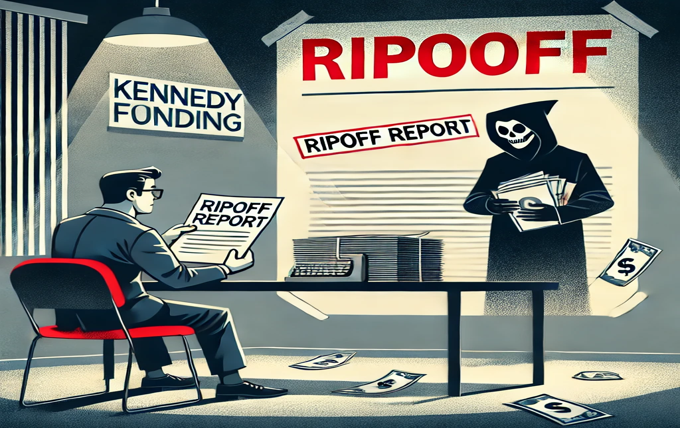Understanding the Kennedy Funding Ripoff Report: What You Need to Know

Businesses frequently go to alternative lenders to suit their financial demands when it comes to obtaining money, particularly for high-stakes initiatives. Over the years, Kennedy Funding, a well-known brand in the private loan industry, has drawn both praise and criticism. One recurring theme in discussions about the company is the Kennedy Funding Ripoff Report.
What is Kennedy Funding?
One well-known private lender that focuses on short-term, high-value loans for commercial real estate developments is Kennedy Funding. The organization was founded with the goal of closing the gap in traditional lending and provides customized solutions for companies who might find it difficult to obtain capital through regular channels.
They offer a wide range of services, including construction, refinance, and land purchase. Kennedy Funding has established itself as a lifeline for investors and developers in need of rapid access to money by emphasizing speed and flexibility. They are not without controversy, though, just like any other financial organization.
Although a large number of customers have effectively utilized their services, others have voiced issues regarding loan terms, fees, and transparency. The so-called Kennedy Funding Ripoff Report, in which unhappy customers vent about their experiences, is the result of this dichotomy.
The Kennedy Funding Ripoff Report: Fact or Fiction?
1. Understanding the Origins
In general, the phrase Kennedy Funding Ripoff Report refers to client complaints or accusations about the business’s operations. Consumer advocacy websites frequently feature these complaints, allowing users to share their own stories and alert others to alleged problems.
Unexpected costs, trouble negotiating terms, and discontent with customer service are a few recurring themes in these reviews. Although these worries may be justified, it’s important to take the situation into account. Many private lending agreements involve high stakes and unique challenges News face, which can sometimes lead to misunderstandings or unmet expectations.
2. Evaluating the Claims
A more thorough analysis of these scam accusations shows a combination of legitimate worries and possibly inflated assertions. For example, some customers claim that their loan agreements contain ambiguous phrases or hidden costs. Even though these problems are severe, they are frequently caused by a failure to exercise due diligence during the contract process.
However, some complaints seem to be the result of irrational expectations on the part of the borrower or annoyance at loan applications that are rejected. It’s important to remember that Kennedy Funding’s specialty, providing high-risk loans, has complexity that may not be suitable for all borrowers.
3. The Role of Consumer Advocacy Platforms
By providing customers with a voice, websites that host these scam reports fulfill a crucial function. But they also have a way of magnifying bad events. A company’s overall performance is distorted since positive encounters are rarely given the same amount of attention. For this reason, it’s vital to evaluate these studies critically and cross-reference data from several sources.
How to Navigate Private Lending Agreements
It is imperative that you take proactive measures to safeguard your interests if you are thinking about working with Kennedy Funding or any other private lender. The following advice will help to guarantee a seamless financing experience:
1. Read the Fine Print
Examine the terms and conditions of any agreement carefully before signing it. Sections pertaining to fees, repayment plans, and penalties should be carefully read. Ask the lender for clarification or speak with a legal professional if something is unclear.
2. Conduct Due Diligence
Examine reviews, testimonies, and independent evaluations to learn more about the lender’s standing. Although ripoff reports can offer insightful information, to obtain a balanced perspective, counterbalance them with unbiased assessments and favorable reviews.
3. Maintain Open Communication
From the beginning, keep the lines of communication open with your lender. Early on, address any concerns and make sure that everyone is on the same page regarding the terms. This can lessen miscommunications and avoid arguments in the future.
Conclusion
The significance of openness and communication in financial transactions is demonstrated by the Kennedy Funding Ripoff Report. Some of the accusations made against the business might be true, but others might just be a reflection of the difficulties that the private lending sector presents.
The most important lesson for prospective borrowers is to approach any lending arrangement carefully and diligently. You may confidently traverse the intricacies of private financing by doing your research, asking the appropriate questions, and getting expert assistance when required.
Ultimately, Kennedy Funding remains a significant player in the private lending space, offering opportunities for businesses that might otherwise struggle to secure funding. Whether they’re the right fit for you depends on your specific needs, expectations, and ability to engage with the process transparently and responsibly.




